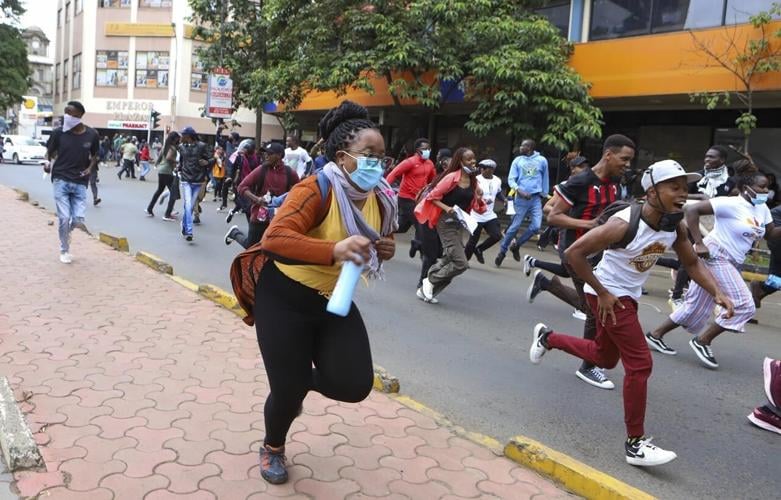The Finance Bill in Kenya has led to significant unrest, resulting in widespread protests across the country.
The bill, which introduces several new taxes, including on essential goods such as bread and sanitary pads, and a tax on vehicles, has sparked public outrage. Despite the outcry, the bill was passed by a majority of MPs during the second reading.
Protests began on June 18, 2024, and spread across major cities including Nairobi, Eldoret, Nakuru, Kisumu, and Nyeri with demonstrations continuing on June 20, 2024. In Nairobi, protesters gathered near parliament, and anti-riot police used tear gas and water cannons to disperse the crowds.
On Thursday, police clashed with protesters, resulting in injuries and at least one death. Rex Masai, a protester, was shot and killed in Nairobi during a confrontation with police. The Independent Policing Oversight Authority began an investigation on June 21, 2024. Anne Makori, the chairperson, praised protesters for their peaceful demonstrations and urged police to exercise restraint.
Aristaricus Irolo, a 26-year-old protester in Nairobi, expressed her frustration: “I dropped out of college as my parents couldn’t afford my education. I’m hustling to go back and now you want to take the little I make and make me not even buy sanitary pads?” Mumbi Muturi, 56, supporting her daughter and niece, stated: “We [her generation] did not come out to protest when we should have. I am not worried about these ones. They are securing their future. I am here to support them.” Stella Agara, a Kenyan tax justice activist, told Al Jazeera: “Kenyans are fed up of the increased taxation, especially increased austerity measures that keep on targeting the poorest of citizens and is becoming very uncomfortable for most of them.”
In Eldoret, President William Ruto’s hometown, hundreds of protesters brought the city to a standstill. In Nyeri, protesters chanted slogans like “Ruto must go!” and “It’s all possible without Ruto.” In Kisumu, protesters voiced their exhaustion with the situation, saying, “We are tired.”
President William Ruto maintained that the protests were a democratic right but emphasized that they would not change the government’s decisions. He defended the tax measures as necessary for managing Kenya’s nearly $80 billion national debt.
Parliament continued to debate the bill, with a final vote expected before June 30, 2024.



